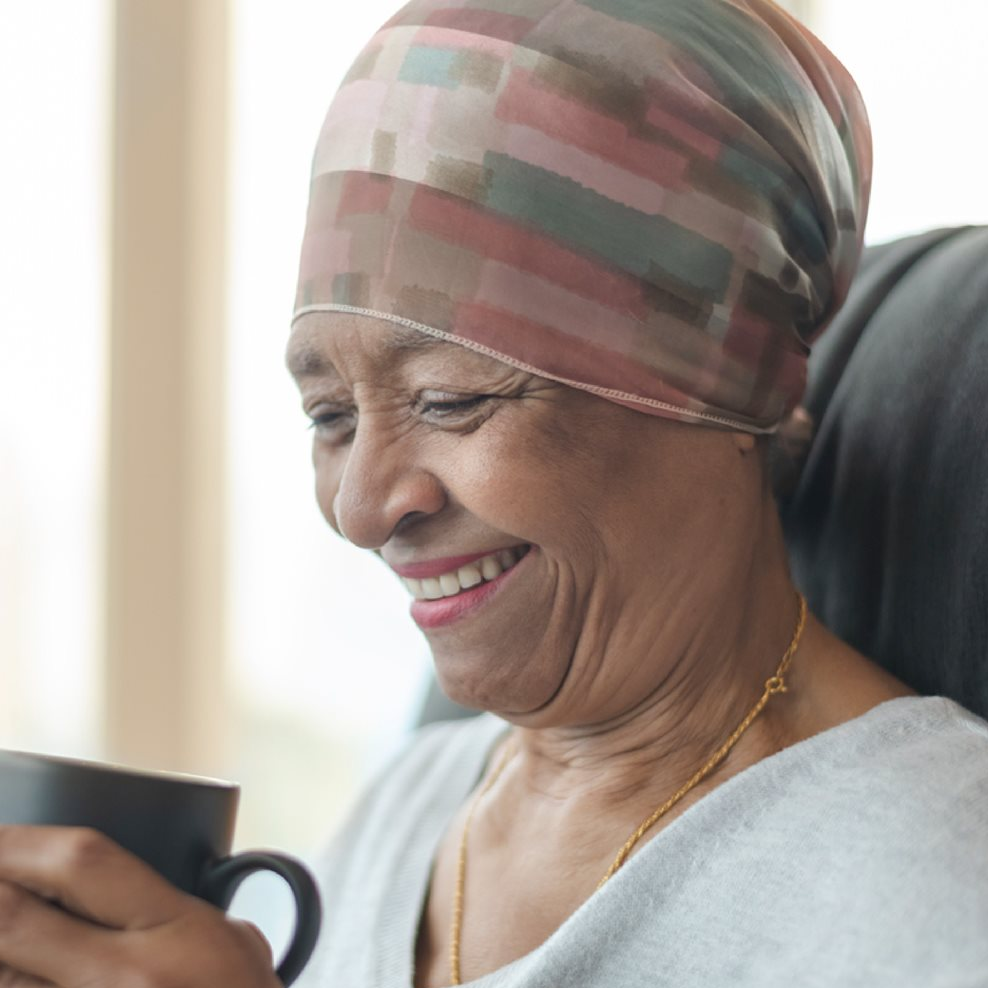I can still see everything in the hospital room in my mind’s eye, the night — 13 days before Christmas — a neurologist delivered the news to my mother and me that she had non-Hodgkin’s lymphoma, an aggressive tumor lodged in her brain. It threw our little family into a panic and into a search for the best treatment available in the subsequent 8 months before her death. Unfortunately, the tumor was diagnosed late in progression and inoperable. In 2009, there weren’t many treatment options available, and the doctors weren’t sure how to respond because not many Black patients had had similar diagnoses, so there was little information to go forward on. Disparities resulting in a lack of data and clear information on lymphoma diagnoses in patients of color was patently clear.
According to the American Cancer Society, about 224,080 new cancer cases and 73,680 cancer deaths were expected to occur among Black people in 2022. And while there seems to be a trend more recently in improved cancer mortality rates overall, glaring disparities persist in diagnosis and treatment across many racial and ethnic groups. For example, Asian American and Pacific Islander women have a 2.5 times higher death rate from stomach cancer as compared to white women. Men of Hispanic ethnicity have a 60% higher death rate from liver and inflammatory bowel disease (IBD) cancer as compared to white men. The higher mortality among cancer patients of color partly reflects a later stage of disease at diagnosis. For example, American Indian and Alaska Native women are approximately 10% more likely to be diagnosed with breast cancer at a later stage than white women.
As an industry, biopharmaceutical companies have invested over a trillion dollars in the search for new treatments and cures. But we realize it takes the entire health care ecosystem to improve patient health—from providers, insurers, hospitals and teams of health care workers who reflect the communities they serve, to makers of innovative treatments and cures. In continuation of our efforts to be partners in building a more just and equitable health care system and in seeking to better the health of neighbors in communities across the country, we are pleased to announce our newest Collaborative Actions to Reach Equity (CAREs) grant program opportunity.
This round of the PhRMA CAREs Grant program seeks to support community-based efforts that reduce racial and ethnic disparities in cancer outcomes. We are specifically interested in specific interventions that address inequities across the continuum of cancer care (e.g., screening or treatment), social determinants of health, or disparities in access to personalized cancer screening, diagnosis, or treatment. Example solutions or research might include:
- Community programs to reduce disparities in rates of screening and access to novel cancer treatments
- Initiatives to reduce out-of-pocket costs associated with access to cancer screening and detection
- Evaluating social and systemic structures that drive inequities in access to cancer diagnosis and treatment
In the 13 years since my mother’s passing, science has come far. As an industry we want to band together to go even farther for our families and loved ones impacted by cancer in all its forms.
Please consider joining with us to help reduce cancer disparities by responding to the CAREs Grant RFP: Improving Cancer Outcomes in Diverse Populations.



